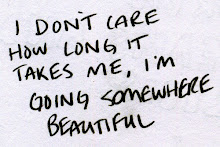Duff Brenna argued that “All literature shows us the power of emotion. It is emotion, not reason, that motivates characters in literature”. In other words one of the main purposes of literature is to prove how emotion ultimately dictates human behavior. Through literary devices authors are able to create stories which realistically portray the true, motivating power of emotion over reason and intellect. This can be shown to be true in the novels The Things They Carried by Tim O’Brien and The Great Gatsby by F. Scott Fitzgerald.
In The Things They Carried, Tim O’Brien uses symbolism, metaphor, and repetition in order to invoke within readers how emotionally burdened the soldiers felt throughout the novel. The soldiers carry weapons, equipment, and rations - all of which the readers are given the physical weight of in order to clearly understand how literally heavy carrying these items around were. These items are metaphoric for the heavy emotions and feelings the soldiers were also forced to carry with them, such as guilt, fear, and shame, as a result of the war. O’Brien uses repetition when listing the different literal and figurative things the soldiers were forced to carry in order to emphasize how consuming and inescapable these feelings of guilt, fear, and shame were. Like the repetition of the list of things the soldiers carried, the burdening emotions they felt seemed endless and forever oncoming. While many of the soldiers (like the character Tim O’Brien) did not find any reason to participate in the war, they were motivated to fight in the war by their overbearing feelings of fear and shame.
In the novel The Great Gatsby, Scott Fitzgerald uses symbolism and characterization to convey how self-destructing and powerful human desire, love, and naivety can be. Fitzgerald creates an overly-romantic, perpetually hopeful, and naively driven protagonist through the character of Jay Gatsby. Jay Gatsby has turned himself from the poor, lower-class James Gatz into the well-known and wealthy Jay Gatsby in order to win back his true love Daisy. What is striking about Gatsby is his extreme idealism in the romantic notion that he can repeat the past, win back Daisy’s love, and be truly happy. He believes through hard work and success anything is possible. Yet, like the narrator Nick Carraway and readers both realize, Gatsby is chasing a dream that does not, and never could exist. Through Gatsby Fitzgerald accurately portrays how desire and longing for love and happiness is more motivating than logic and reason.
In both The Things They Carried and The Great Gatsby, the authors convey the power of emotion through main themes. The Things They Carried has an ongoing theme of courage and cowardice, in which O’Brien uses irony to show the true nature of cowardice and the hypocrisy of society’s idea of courage. In many instances, characters in The Things They Carried do things that seem to be courageous not because they are brave or honorable, but because they are afraid of appearing as cowards. This fear of shame and appearing cowardly, instead of bravery and valor, is what motivates the soldiers in many of their actions. In The Great Gatsby, Fitzgerald uses the theme of the American Dream and the inevitable failure one will meet in chasing it. Gatsby’s hopeless chase of his delusional dream of love and happiness with Daisy is representative of the American Dream; it accurately mirrors how Americans naively think wealth and status will bring them true happiness. Through this notion, Fitzgerald perfectly portrays how it is human nature to override reason with emotion and desire.
As Duff Brenna once said, “All literature shows us the power of emotion. It is emotion, not reason, that motivates characters in literature”. This is proven true through the use of symbolism, metaphor, repetition, characterization, and theme in the novels The Things They Carried by Tim O’Brien and The Great Gatsby by Scott Fitzgerald. Through these literary devices Tim O’Brien conveys how fear and shame can be more motivating than reason and morality. Fitzgerald uses these devices to create a novel that represents how truly vulnerable human nature is to emotion, and how desire for love and happiness can be more motivating than logic and reasoning.

0 comments:
Post a Comment